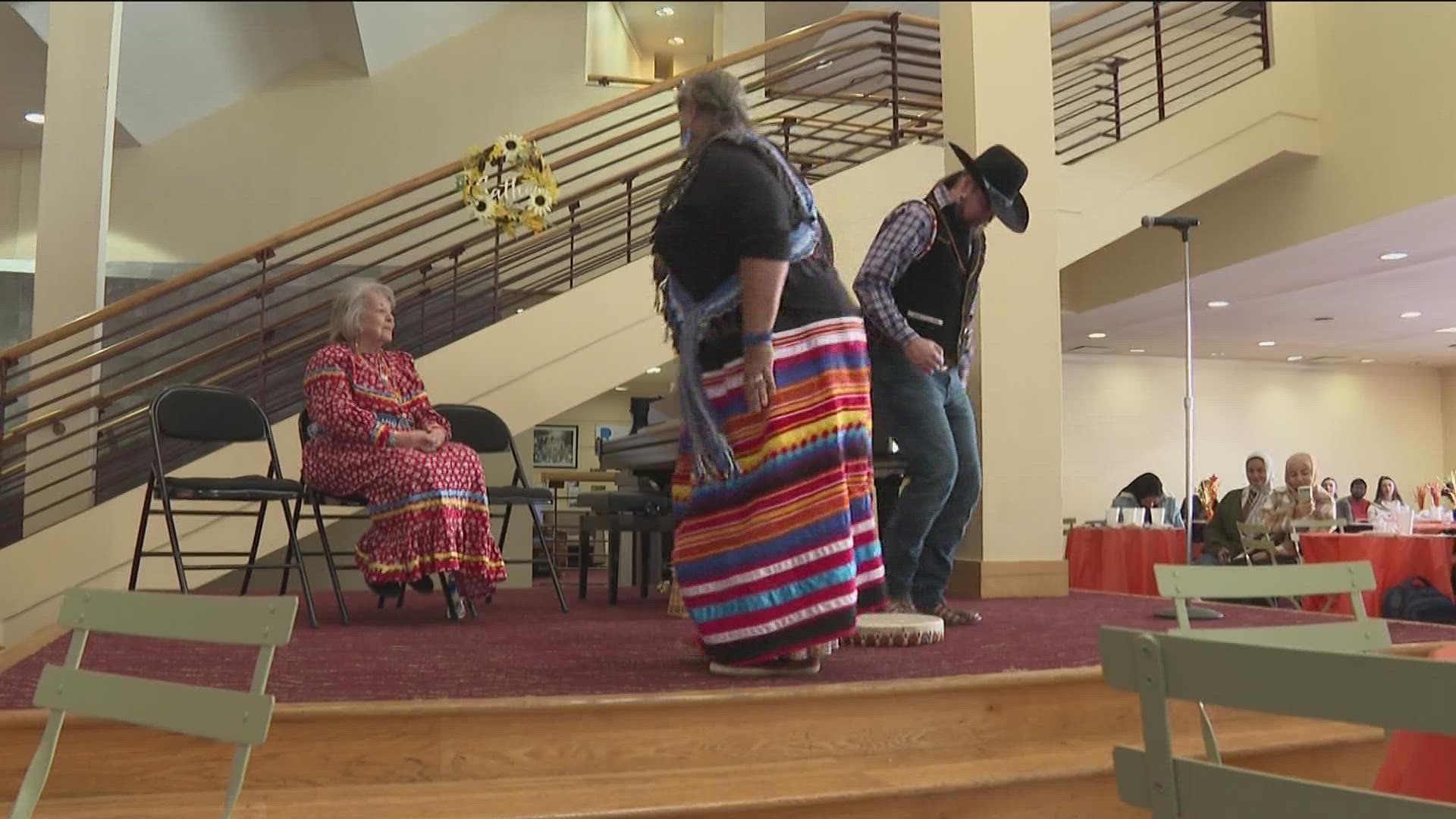ATLANTA — A group of indigenous leaders made a new generation aware of their ancestors' struggles with a lesson on the true nature of the Thanksgiving holiday.
Dr. Monika Ponton Arrington, leader of Georgia Indigenous Diversity, educated students at Georgia State University on the exploitation of the natives as the holiday approaches.
“We're letting people know that we're here, that our homeland is here, and we don't plan on leaving any time soon,” said Arrington.
Arrington is a Native American herself. The Boriken Taino wants to be an advocate for younger generations.
"In the history books, you just read from like an author's perspective because they have interviewed someone. But for them to hear from someone who's actually Native American, it just has a different meaning to it," said Aditi Tamhane, a GSU student.
For those who see the holiday as a day to celebrate being thankful, the holiday was actually used to glorify stealing from and the massacre of Native Americans.
In her lesson, Arrington reaffirmed that the natives welcomed both the pilgrims and Europeans helping them with ways to adapt to the new land.
The natives' gratitude was mistaken for greed as the Europeans grew hungry for more food.
“The pilgrims actually did a celebration that they had taken the food, taking the harvest from the people. That was their celebration that they had taken the harvest," said Arrington.
She said the pilgrims killed many indigenous people and enslaved their children.
“It's actually, we considered it a day of mourning now. We do celebrate, but not a celebration of Thanksgiving, but a celebration of having family come together, said Arrington.
Students who attended the lesson gained a greater understanding of the natives' roots, they said. Arrington left a lasting impression on the students by sharing the struggles of those who came before her.
“I learned the hardships they went through, it’s easily relatable to me because I come from a different background too, and I’ve had to go through hardships,” said Tamhane.
Arrington encourages everyone to watch a documentary and learn more about the indigenous people here in Georgia.
"We're no different. We bleed just like you do. We live in homes. We drive cars," said Arrington.
This story is part of a series of stories done by 11Alive's Dawn White for Native American Heritage Month.

